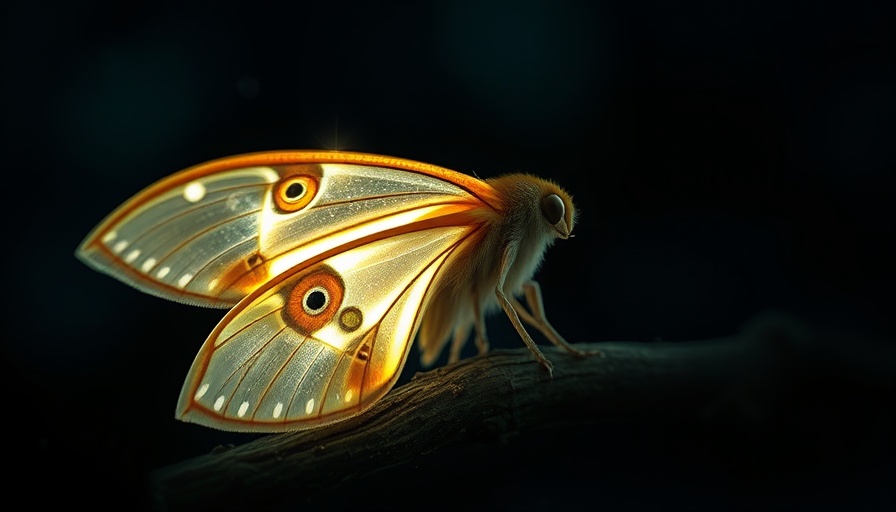
Unlocking the Secrets of Nocturnal Pollination
A recent study from Lund University has unveiled a remarkable aspect of nature: pollination doesn’t just happen during the day. Nocturnal pollinators, including moths and bats, play a surprisingly vital role in the reproduction of over 90% of plants. This research challenges long-held beliefs about pollination and highlights the fundamental importance of understanding ecological balance.
The Role of Nocturnal Pollinators
Historically, daytime pollinators like bees and butterflies have garnered most of the attention for their vital contributions to agriculture and ecosystem health. However, researchers Liam Kendall and Charlie Nicholson emphasize that their nighttime counterparts deserve equal recognition. Their analysis combined data from 135 studies spanning numerous ecosystems, revealing that for 90% of plant species investigated, reproductive success remained stable regardless of whether pollination occurred at night or during the day.
Why This Research Matters
This groundbreaking study not only brings nocturnal pollinators into the spotlight but also raises concerns about the preservation of these species, who have often been overlooked in conservation efforts. The shift in focus to include nocturnal pollinators enriches our understanding of ecological relationships and promotes a more holistic approach to environmental stewardship. Recognizing the resilience and adaptability of both day and night pollinators may be crucial for improving best practices in agricultural pollination and biodiversity conservation.
Implications for the Future
The findings from this first-of-its-kind study provide vital insights into agricultural strategies and ecosystem management. As farmers and health enthusiasts explore new methods for wellness via plant-derived foods, awareness of all pollinators' roles becomes increasingly significant. Those committed to sustainable living and ecohealth trends can benefit from aligning practices that support the entire spectrum of pollination.
How You Can Contribute
By fostering environments that support both diurnal and nocturnal pollinators, individuals can contribute to healthier ecosystems. Simple actions like planting night-blooming flowers or reducing pesticide use can significantly impact these crucial nighttime species and help maintain biodiversity. As you seek wellness strategies, remember that the interconnections within ecosystems can impact your health and nutrition directly.
 Add Row
Add Row  Add
Add 




Write A Comment